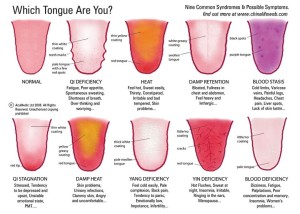|
This year the Chinese Lunar New Year falls on February 8. It is the Year of the Monkey according to Chinese zodiac. The Chinese New Year, also called Spring Festival, has more than 4,000 years of history. It is the grandest and the most important annual event in Chinese communities and celebrated around the world. In China it is the longest public holiday as workplaces are closed for a week to celebrate the New Year and most families gather for reunions. Students take a whole month off this time of year. It is a time for new clothes and the color red is especially used in decorating as it is auspicious and will bring success and good fortune. The whole house is cleaned before the festival begins and there are special customs observed, including giving red envelopes of money to children and seniors. We are lucky to live in San Francisco Bay Area with vibrant and large Chinese communities to share in the fun and festivities and experience this great holiday, a big parade, wonderful foods and excitement!
May 2016 be filled with increasing success, ample family and recreational time, vibrant health and balance for you and your family! HISTORY The holiday traces its origins to the Shang Dynasty (17th-11th century BCE) where the folklore tells of a monster Nian who liked to steal and devour children or livestock. The tradition of lighting loud red firecrackers dates from this practice of protecting one’s home, family and livelihood to scare the monster Nian away who disliked noise and the color red. ZODIAC In the Chinese zodiac there are 12 animals each representing a year in this astrological system and the Monkey is the 9th after the Ram/Sheep and before the Rooster which will start on January 28th, 2017. The Chinese zodiac system also follows the 5 elements (Gold/Metal, Wood, Water, Fire, or Earth) and this year is a Fire or Red Monkey. The animal years follow the pattern of elements so the whole system takes 60 years to repeat so it will be 2076 before we have another Fire Monkey Year. If you were born in the a year of the monkey (1920, 1932, 1944, 1956, 1968, 1980, 1992, 2004, 2016) then your sign is a Monkey. Monkeys are said to be intelligent, social, cheerful or energetic by nature and usually represent flexibility. People under the sign of the Monkey are clever and wise, intelligent, confident, charismatic, loyal, inventive and have leadership skills. The weaknesses of the Monkeys are being egotistical, arrogant, crafty, restless and snobbish. To read more about the Chinese zodiac, Spring Festival and customs: http://www.chinahighlights.com/travelguide/chinese-food/chinese-new-year-food.htm http://www.yourchineseastrology.com/zodiac/ What Type of “Monkey” Are You: Wood, Fire, Earth, Gold, or Water? 5 Element Positive (+) and Negative (-) Associations
Some popular Chinese New Year Greetings: 1. 新年好 / 新年好 (Xīnnián hǎo) “New Year goodness!”
0 Comments
Believe it or not, your tongue plays a unique role in how Chinese medicine practitioners understanding your body’s constitution. Tongues differ from one person to the next and they can tell us a lot of information. When we at San Francisco Integrative Medicine examine your tongue, we are systematically looking at very specific characteristics to learn about the interior state of your health. Your tongue provides a window into how your body is functioning. For example, each tongue will change when there are improvements or declines in health.
Getting to the Basics A healthy tongue is naturally pink and has a thin white coating. While almost all tongues have some imperfections, especially as we age, but certain lifestyle choices produce noticeable changes. For example, regular smokers will often have a drier, yellowish coating on their tongues. When Chinese medicine practitioners look at your tongue, we observe: shape and size, color, and coating. Shape and Size The shape and size of the tongue shows the state of the fluids running through the body. For example, a small, short tongue may indicate an insufficient amount of moisture in the body. In comparison, a very large, puffy tongue with indents on the edges of the tongue could indicate that fluids are not flowing through the body as easily as they should. Color Ideally, the healthy tongue body looks pink. Of course, the natural tongue color can vary from person to person, it is still a very good indicator of what is happening inside your body. For example, a red tongue points to heat in the body. The redder the tongue, the greater is the amount of heat. On the other hand, a pale tongue could mean that there is not enough heat in the body, or that there is a deficiency of qi or blood. Coating Look at your tongue in the mirror, does your tongue have a thick or thin coating? The coating, depends on many factors and changes much more quickly than the tongue body. Normally your coating is thin. If you are getting sick or feeling a cold coming on, you may see a thicker coating developing. The consistency of the tongue’s coating also indicates the state of the fluids in the body. A dry coating represents a drier body just as an excessively moist coating indicates a damp body or poor fluid circulation. Tongue coatings also come in different colors. A thin white coating is normal. A yellow coat is a heat sign especially when combined with a red body. Gray or black coating colors also exist, and indicate a severe condition. Looking at tongues plays a big role in how we diagnose and treat every person. Take a peak at the picture at the top and see what your tongue may be telling us about you! by Elanita Korian, L.Ac., MS |
Archives
December 2023
Categories
All
|
Proudly powered by Weebly



 RSS Feed
RSS Feed